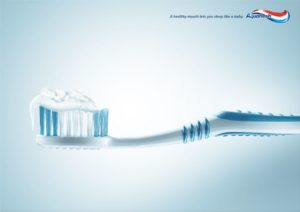Risk Factors for Diabetes-Related Hearing Loss
Diabetes is a serious condition that can lead to a number of complications, including hearing loss. Research has shown that people with diabetes are at increased risk for developing hearing problems and eventually needing a set of hearing aids. You can read more at ABC Action News. There are a few different mechanisms by which diabetes may damage the auditory system, but one of the most important is through changes in blood sugar levels. Here’s what you need to know about the link between diabetes and hearing loss, or in other words, the risk factors of diabetes-related hearing impairment and what you can do to protect your hearing if you have this condition.
Low HDL Levels
HDL, or high-density lipoprotein, is a type of cholesterol that helps protect your body from plaque accumulation in your arteries. This is what people usually call “good” cholesterol. People with diabetes are at an increased risk of having low levels of HDL, which can lead to hearing impairment by making it harder for blood to reach the inner ear structures. For this reason, it’s more than important to maintain healthy HDL levels and keep an eye out for any signs of hearing loss. You can try eating foods high in omega-3 fatty acids and healthy fats, such as salmon, tuna, avocados, and olive oil.
Damaged Nerves

High blood sugar levels can damage the inner ear’s nerves, resulting in hearing loss. This is especially common if diabetes has not been managed properly or you have a history of hypoglycemia or low blood sugar episodes. Be sure to monitor your glucose levels regularly and talk to your doctor if you experience any symptoms of hypoglycemia, such as confusion, shakiness, or a fast heartbeat. With some lifestyle changes and good diabetes management, you can help protect your hearing.
Coronary Heart Disease
People with diabetes are more likely than those without the condition to develop coronary heart disease, which can cause hearing loss. This is due to the fact that high levels of fatty deposits in the arteries can lead to restricted blood flow, depriving the inner ear structures of oxygen and nutrients needed for proper functioning. To reduce your risk for coronary heart disease and protect your hearing, maintain a healthy diet and exercise regularly. Additionally, don’t smoke or abuse drugs or alcohol, as these can further damage your arteries and lead to other potentially serious health complications.
Excessive Exposure to Loud Noise
 Though it’s not related directly to diabetes, too much exposure to loud noises can lead to hearing loss in people with or without diabetes. However, research has shown that people with diabetes are more sensitive to the effects of noise and may be at an increased risk for developing hearing impairments. That’s why it’s never bad to wear earplugs when working around noisy machinery or in other loud environments. Additionally, if you’re attending a loud concert or sporting event, be sure to give your ears a rest after prolonged exposure by taking breaks in quieter areas of the venue.
Though it’s not related directly to diabetes, too much exposure to loud noises can lead to hearing loss in people with or without diabetes. However, research has shown that people with diabetes are more sensitive to the effects of noise and may be at an increased risk for developing hearing impairments. That’s why it’s never bad to wear earplugs when working around noisy machinery or in other loud environments. Additionally, if you’re attending a loud concert or sporting event, be sure to give your ears a rest after prolonged exposure by taking breaks in quieter areas of the venue.
In short, diabetes can increase your risk of developing hearing loss by damaging the nerves, reducing blood flow to the inner ear, and contributing to coronary heart disease. To reduce your chances of experiencing hearing impairments due to diabetes, be sure to manage your condition closely and protect yourself from excessive exposure to loud noises. With a little effort and some lifestyle changes, you can help preserve your hearing and maintain optimal health.



